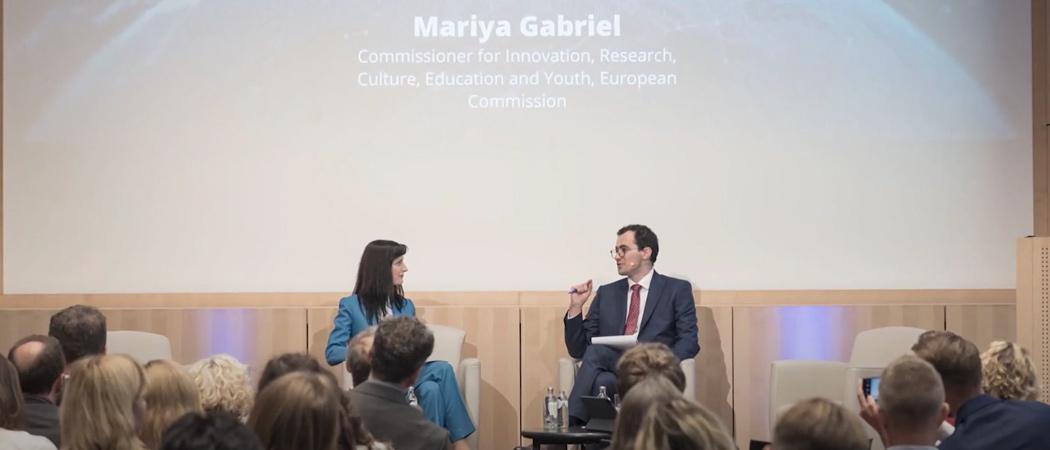At a Science|Business conference Sept. 7, Commissioner Gabriel and other policymakers debated actions to exploit the EU’s full research and innovation capacity – and Science|Business launched its own Widening initiative

Not all EU countries were born equal. In the most recent edition of its Innovation Scoreboard report, the European Commission concludes that innovation excellence and performance continue to be geographically concentrated in northern and western Europe.
In an effort to help bridge that innovation gap, at its conference on 7 September 2022 Science|Business launched the Widening initiative to keep track of R&D growth, science and technology investment opportunities in central and eastern Europe. The initiative includes a newsletter, events and other activities.
Around the launch, policymakers and research stakeholders debated the main reasons behind this performance gap and ways to move the discussion forward, to identify where are the pockets of excellence in central and eastern Europe, and what we can be done to connect lagging R&I systems with the rest of the continent.
EU research and innovation commissioner Mariya Gabriel said that paying attention to the pockets of excellence in all regions and helping them connect to the broader innovation ecosystem in the EU would help the bloc safeguard its leading role in global science and technology.
A first step in this direction would be “giving visibility to success stories everywhere in every corner in of our regions in Europe,” said Gabriel.
The commissioner also noted that governments should be reminded about the importance of investing in research and innovation so they can be better prepared for future crises. The deployment of successful vaccines against COVID-19 in less than a year after the pandemic started was no accident, she said. “If you were able to have a vaccine in less than one year, it was exactly because for many years before an investment was made in research,” Gabriel said.
During negotiations before the launch of Horizon Europe, policymakers in Brussels agreed to triple the budget for the Widening programme to €3.3 billion, to help researchers in poorer member states build the networks they need to become part and parcel of EU’s research establishment.
However, the consensus remains that Horizon Europe should stick firmly to the excellence principle and fund the best proposals without reference to where researchers are based.
Latvian MEP Ivars Ijabs noted that geographically distributed EU funds that are distributed by national governments could be mismanaged. Ijabs has recently visited Hungary to assess the research and innovation landscape there and he concluded that European projects run by national governments “will have a certain tendency to be corrupted and resources to be misused.”
Instead of disbursing funds based on geographical criteria, Ijabs suggested the EU could make Horizon Europe more efficient so that certain partnerships and consortia are more open to partners from central and eastern Europe.
Kinga Stanisławska, founder of Experior VC and a member of the European Innovation Council board also noted that the EU can become less dependent on foreign technologies only if it can make use of the full breadth of excellence research and innovation ecosystems, regardless of where they are located. “This of course requires help funding networks and many other support actions,” said Stanisławska.
Alain Beretz, president of the COST Association, concluded that whatever further measures the EU and member states will take to spread research and innovation performance more evenly, they should all be based on excellence. “If we forget the excellence, then we've spread nothing.”
Science|Business will continue to follow this debate in future editions of the Widening newsletter. Here you can find the first edition. Sign up here to make sure the next edition, which is to be published on 5 October, lands in your inbox.
Click here for more information about the Widening.




 A unique international forum for public research organisations and companies to connect their external engagement with strategic interests around their R&D system.
A unique international forum for public research organisations and companies to connect their external engagement with strategic interests around their R&D system.